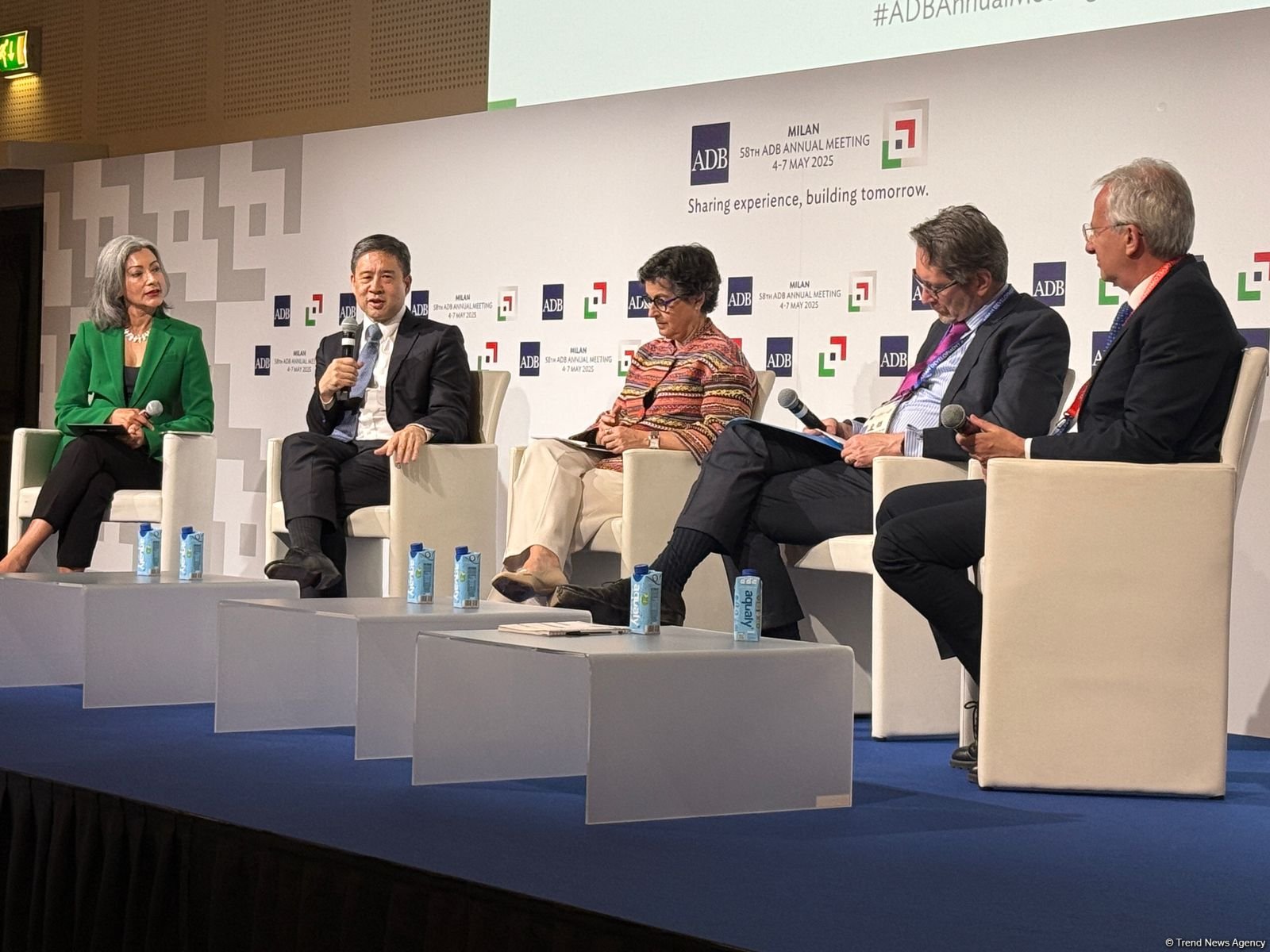MILAN, Italy, May 4. Globalization remains powerful engine of development for emerging economies, ADB Chief Economist and Director General, Economic Research and Development Impact Department Albert Park said speaking at the session “Globalization as a Force for Sustainable Development” during the 58th Annual Meeting of ADB in Milan, Trend reports.
Park emphasized the importance of embracing globalization to ensure long-term economic growth and reduce inequality among countries.
“You need to work on your own competitiveness to build a business environment, infrastructure, that can really position you to be part of globalization,” Park said. He noted that while globalization faces challenges, it remains a powerful engine of development, particularly for emerging economies.
Citing research by Paul Collier and David Dollar from the World Bank, Park pointed out that “in every period of globalization, you’ve seen the countries that participated grow faster, and you see convergence among the countries participating, meaning the poor members actually do even better.”
He highlighted the 1980–2000 period as a turning point: “It was the first one where lots of developing and emerging economies were participants in globalization,” noting that this era saw developing nations shift into manufacturing and export-driven growth. “This was incredibly powerful for driving global convergence and improving lives,” he added.
Park warned that as global technology accelerates, countries risk falling behind if they remain disconnected. “You really get productivity growth by transferring existing technologies to your country. And if you’re not part of the globalization game… you’re going to fall behind.”
He acknowledged that some governments remain hesitant to pursue deeper integration due to perceived short-term difficulties. “I sometimes feel there’s a complacency, because there’s some growth happening. It doesn’t seem so easy to really implement measures for promoting FDI or trade globalization. There’s pain points,” Park said. “But if you take a historical view, that’s really where all the paths are.”
For smaller or lower-income countries, Park argued that global value chains (GVCs) offer a practical entry point: “A poor country actually has more opportunity to get into globalization because they can specialize in a very small part. They don’t have to produce the whole good.”
He concluded with a message of optimism: “Once you get into a global value chain, then you have the opportunity to move up… and by being part of the value chain, you will learn things through both your suppliers and your customers that will help you get to the global market.”







